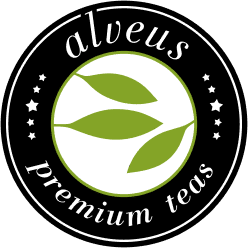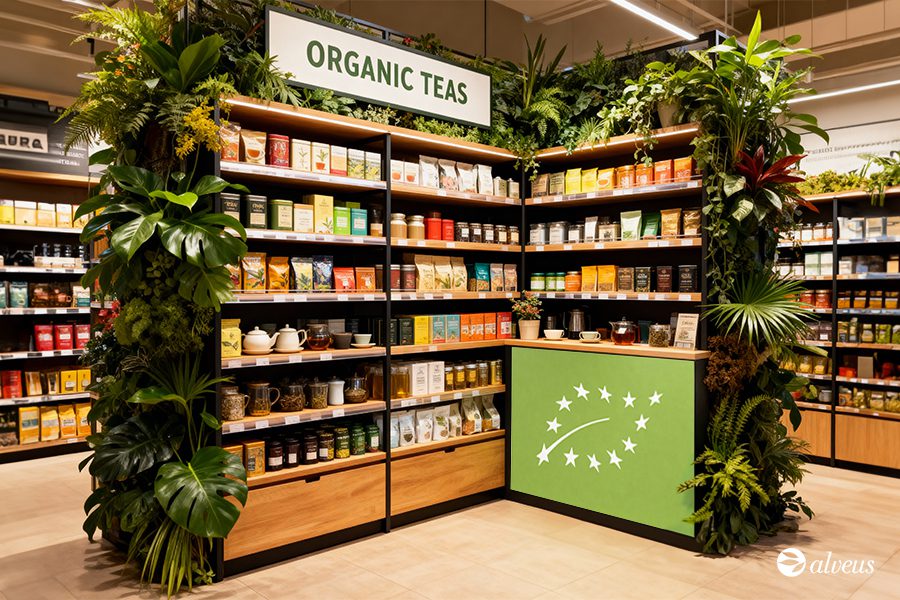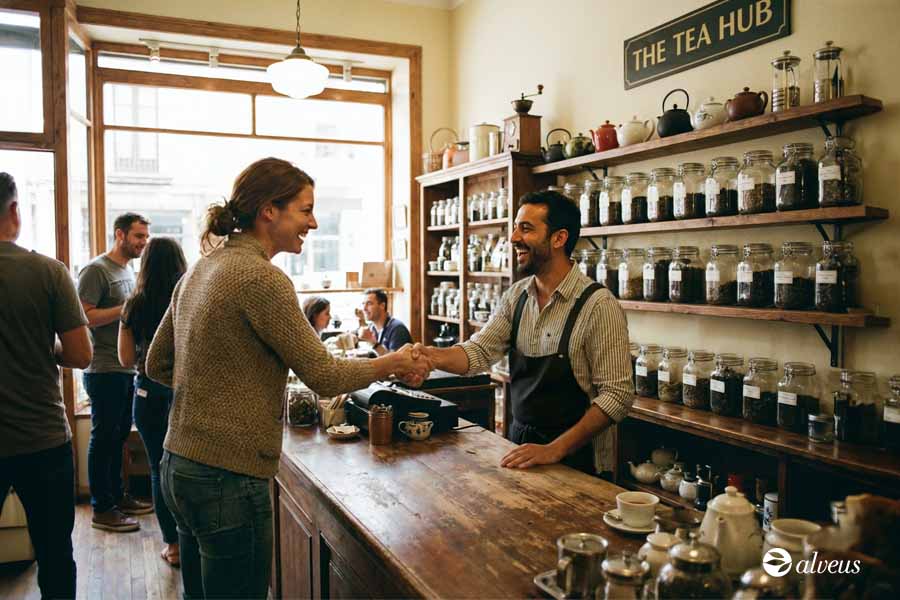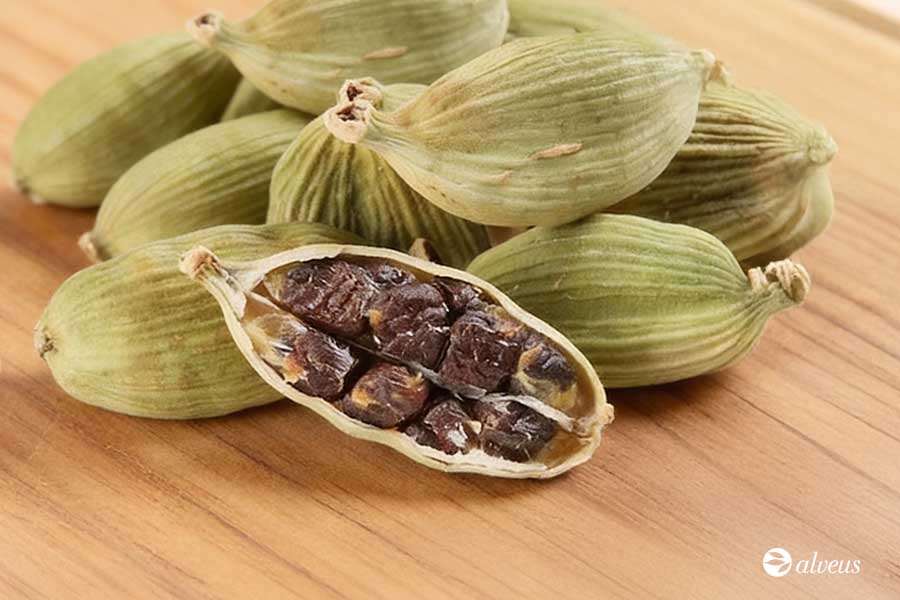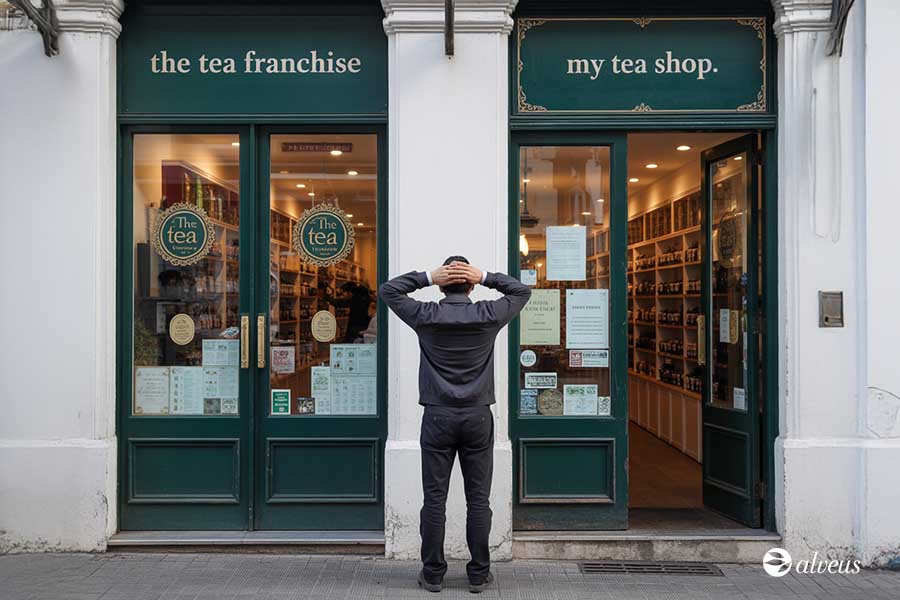There is a question that tea shops often receive from their customers: what is so special about organic tea?
More and more customers are interested in organic and natural teas, asking about their origin and the way that they are grown. If you can explain it in 10 seconds, you can turn a question into a sale, better justify the price and strengthen your positioning.
Our recommendation is to start with a short, breathable message that fits in one breath:
In less than 10 seconds, you have touched on cultivation, external control and benefits for the consumer and the planet. From there, you are no longer defending a logo: you are opening a conversation.
Explain the journey of organic tea from the garden to the cup without technical jargon.
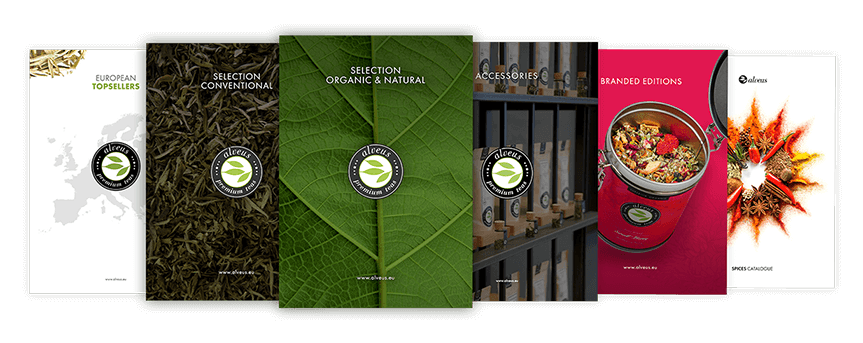
When someone asks you to “explain organic farming to me”, they don’t expect you to give them a masterclass. They expect an answer they can understand and believe.
You can put it this way: organic is a way of working the land that prioritises living soils and manages pests with biocontrol and plant extracts.
The result is tea plantations with better soil structure, less erosion, and leaves that arrive at the factory with greater potential. And you can taste the difference in your cup: less vegetal “noise”, recognisable aromas, and cleaner finishes.
The other piece that gives your customer peace of mind is the audit. It does not depend on faith in the shop. Each campaign undergoes an external control, and there is traceability that accompanies the batch.
Frequent objections, natural responses

More and more people are turning to organic foods, including tea.
However, there is still a small minority who, due to a lack of knowledge, continue to have doubts about organic products. These doubts turn into objections, which, with a little education, end up resolving themselves in favour of the benefits of the product.
Below are some of the most frequently asked questions and objections, along with the answers you can give your customers.
- “It’s more expensive for ‘just tea‘.”
Response: The extra cost does not go towards packaging, but rather towards the field and control: more manual labour, more records, more audits. Ultimately, you are paying for a crop with fewer synthetic inputs and more external control. Even so, the cost per cup remains very reasonable.
- “Tea is already healthy, so what’s the point of it being organic?“
Answer: It’s true, tea is already a good choice. Organic adds another layer: it is grown without synthetic pesticides and undergoes very strict external controls. It’s not moralising, it’s a different way of producing and guaranteeing what goes into your cup.
- “If it’s organic, then it has no residues, right?“
Answer: Organic farming aims to avoid synthetic pesticides and reduce risks, but it would be dishonest to talk about “absolute zero”: there can always be some environmental contamination. The important thing is that the limits are very strict and are monitored by external analyses and audits.
- “Does it really taste better than non-organic?“
Answer: Just because it’s organic doesn’t automatically mean it tastes better; it depends a lot on the origin and type of tea. What we do see is that, in many origins, organic projects take better care of the soil and the harvest, and this is reflected in cleaner, more balanced cups. If you like, I can prepare an organic and a conventional cup of the same style for you to decide for yourself.
- “If it says natural, it must be the same as organic.”
Answer: ‘Natural’ is not regulated in the same way as ‘organic’. Anyone can write ‘natural’ on a package; however, to say ‘BIO’, you have to comply with European regulations, pass audits and display the control body’s code. That’s why, for us, the ECO seal and code carry much more weight than the word ‘natural’.
- “This BIO thing is just marketing, just another sticker.”
Answer: If it were just marketing, the logo would be enough. But behind the BIO seal there are annual audits, batch traceability and strict regulations in the field and in the factory. We are asked for certificates, annexes and analyses; if you like, I can show them to you.
- “I don’t trust labels very much, I’m sure it’s just a way to charge more.”
Answer: Trust does not come only from the logo, but from the paperwork behind it: valid certificates, annexes listing each reference, agricultural origin, analyses… We only work with suppliers who undergo these controls and, if you are interested, I can show you how to read an organic label so that you don’t have to rely solely on anyone’s word, not even ours.
Let the tea speak for itself, don't explain it
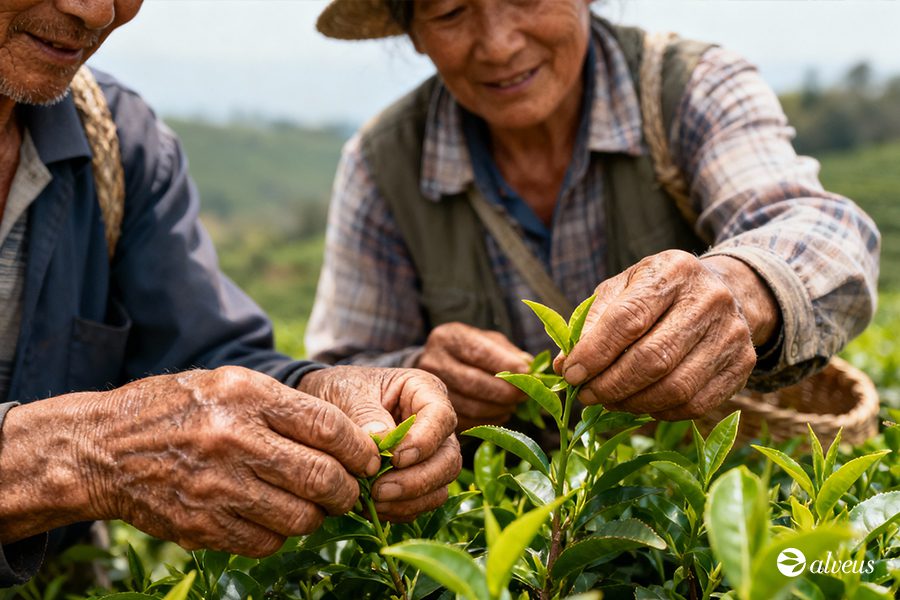
Ultimately, the best argument for selling organic tea is not in the discourse, but in the experience.
No technical data sheet can replace the moment when a customer smells a freshly opened tea or discovers that it has a livelier texture and a cleaner aroma in the cup. The most natural way to convey the value of organic products is to let them speak for themselves.
Organise small tastings, prepare the tea in front of the customer or invite them to compare the same variety in conventional and organic versions, turning the explanation into an experience.
When quality is perceived with the senses, words are unnecessary, and the sale becomes almost a logical consequence.
